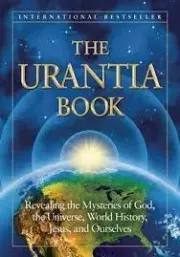Urantia Foundation - The Gospel of Jesus 1-2- Youth-Travels
Название: | The Gospel of Jesus 1-2- Youth-Travels | |
Автор: | Urantia Foundation | |
Жанр: | Старинная литература | |
Изадано в серии: | неизвестно | |
Издательство: | неизвестно | |
Год издания: | - | |
ISBN: | неизвестно | |
Отзывы: | Комментировать | |
Рейтинг: | ||
Поделись книгой с друзьями! Помощь сайту: донат на оплату сервера | ||
Краткое содержание книги "The Gospel of Jesus 1-2- Youth-Travels"
Urantia.org
The Gospel of Jesus-1
From Papers 120-129 from The Urantia Book
The Gospel of Jesus-2
From Papers 130-134 from The Urantia Book
Читаем онлайн "The Gospel of Jesus 1-2- Youth-Travels". [Страница - 3]
- 1
- 2
- 3
- 4
- 5
- . . .
- последняя (30) »
126:2.2 (1388.2) Just at the time when prospects were good and the future looked bright, an apparently cruel hand struck down the head of this Nazareth household, the affairs of this home were disrupted, and every plan for Jesus and his future education was demolished. This carpenter lad, now just past fourteen years of age, awakened to the realization that he had not only to fulfill the commission of his heavenly Father to reveal the divine nature on earth and in the flesh, but that his young human nature must also shoulder the responsibility of caring for his widowed mother and seven brothers and sisters—and another yet to be born. This lad of Nazareth now became the sole support and comfort of this so suddenly bereaved family. Thus were permitted those occurrences of the natural order of events on Urantia which would force this young man of destiny so early to assume these heavy but highly educational and disciplinary responsibilities attendant upon becoming the head of a human family, of becoming father to his own brothers and sisters, of supporting and protecting his mother, of functioning as guardian of his father’s home, the only home he was to know while on this world.
126:2.3 (1388.3) Jesus cheerfully accepted the responsibilities so suddenly thrust upon him, and he carried them faithfully to the end. At least one great problem and anticipated difficulty in his life had been tragically solved—he would not now be expected to go to Jerusalem to study under the rabbis. It remained always true that Jesus “sat at no man’s feet.” He was ever willing to learn from even the humblest of little children, but he never derived authority to teach truth from human sources.
126:2.4 (1388.4) Still he knew nothing of the Gabriel visit to his mother before his birth; he only learned of this from John on the day of his baptism, at the beginning of his public ministry.
26:2.5 (1388.5) As the years passed, this young carpenter of Nazareth increasingly measured every institution of society and every usage of religion by the unvarying test: What does it do for the human soul? does it bring God to man? does it bring man to God? While this youth did not wholly neglect the recreational and social aspects of life, more and more he devoted his time and energies to just two purposes: the care of his family and the preparation to do his Father’s heavenly will on earth.
126:2.6 (1389.1) This year it became the custom for the neighbors to drop in during the winter evenings to hear Jesus play upon the harp, to listen to his stories (for the lad was a master storyteller), and to hear him read from the Greek scriptures.
126:2.7 (1389.2) The economic affairs of the family continued to run fairly smoothly as there was quite a sum of money on hand at the time of Joseph’s death. Jesus early demonstrated the possession of keen business judgment and financial sagacity. He was liberal but frugal; he was saving but generous. He proved to be a wise and efficient administrator of his father’s estate.
126:3.5 (1389.8) This year Jesus was much troubled with confused thinking. Family responsibility had quite effectively removed all thought of immediately carrying out any plan for responding to the Jerusalem visitation directing him to “be about his Father’s business.” Jesus rightly reasoned that the watchcare of his earthly father’s family must take precedence of all duties; that the support of his family must become his first obligation.
126:3.6 (1390.1) In the course of this year Jesus found a passage in the so-called Book of Enoch which influenced him in the later adoption of the term “Son of Man” as a designation for his bestowal mission on Urantia. He had thoroughly considered the idea of the Jewish Messiah and was firmly convinced that he was not to be that Messiah. He longed to help his father’s people, but he never expected to lead Jewish armies in overthrowing the foreign domination of Palestine. He knew he would never sit on the throne of David at Jerusalem. Neither did he believe that his mission was that of a spiritual deliverer or moral teacher solely to the Jewish people. In no sense, therefore, could his life mission be the fulfillment of the intense longings and supposed Messianic prophecies of the Hebrew scriptures; at least, not as the Jews understood these predictions of the prophets. Likewise he was certain he was never to appear as the Son of Man depicted by the Prophet Daniel.
126:3.7 (1390.2) But when the time came for him to go forth as a world teacher, what would he call himself? What claim should he make concerning his mission? By what name would he be called by the people who would become believers in his teachings?
126:3.8 (1390.3) While turning all these problems over in his mind, he found in the synagogue library at Nazareth, among the apocalyptic books which he had been studying, this manuscript called “The Book of Enoch”; and though he was certain that it had not been written by Enoch of old, it proved very intriguing to him, and he read and reread it many times. There was one passage which particularly impressed him, a passage in which this term “Son of Man” appeared. The writer of this so-called Book of Enoch went on to tell about this Son of Man, describing the work he would do on earth and explaining that this Son of Man, before coming down on this earth to bring salvation to mankind, had walked through the courts of heavenly glory with his Father, the Father of all; and that he had turned his back upon all this grandeur and glory to come down on earth to proclaim salvation to needy mortals. As Jesus would read these passages (well understanding that much of the Eastern mysticism which had become admixed with these teachings was erroneous), he responded in his heart and recognized in his mind that of all the Messianic predictions of the Hebrew scriptures and of all the theories about the Jewish deliverer, none was so near the truth as this story tucked away in this only partially accredited Book of Enoch; and he then and there decided to adopt as his inaugural title “the Son of Man.” And this he did when he subsequently began his public work. Jesus had an unerring ability for the recognition of truth, and truth he never hesitated to embrace, no matter from what source it appeared to emanate.
126:3.9 (1390.4) By this time he had quite thoroughly settled many things about his forthcoming work for the world, but he said nothing of these matters to his mother, who still held stoutly to the idea of his being the Jewish Messiah.
126:3.10 (1390.5) The great confusion of Jesus’ younger days now arose. Having settled something about the nature of his mission on earth, “to be about his Father’s business”—to show forth his Father’s loving nature to all mankind—he began to ponder anew the many statements in the Scriptures referring to the coming of a national deliverer, a Jewish teacher or king. To what event did these prophecies refer? Was not he a Jew? or was he? Was he or was he not of the house of David? His mother averred he was; his father had ruled that he was not. He decided he was not. But had the prophets confused the nature and mission of the Messiah?
126:3.11 (1391.1) After all, could it be possible that his mother was right? In most matters, when
--">- 1
- 2
- 3
- 4
- 5
- . . .
- последняя (30) »
Книги схожие с «The Gospel of Jesus 1-2- Youth-Travels» по жанру, серии, автору или названию:
 |
| Urantia Foundation - Urantia book 120-196 Jesus Жанр: Старинная литература Год издания: 2022 |
| Urantia Foundation - The Gospel of Jesus-3 Жанр: Старинная литература Год издания: 101 |
Другие книги автора «Urantia Foundation»:
 |
| Urantia Foundation - Книга Урантии.121-129-Детство и юность Иисуса Жанр: Эзотерика, мистицизм, оккультизм Год издания: 2020 |
 |
| Urantia Foundation - Книга Урантии 135-145- Иисус и апостолы Жанр: Эзотерика, мистицизм, оккультизм Год издания: 2020 |
| Urantia Foundation - The Gospel of Jesus-3 Жанр: Старинная литература Год издания: 101 |
| Urantia Foundation - Тайная вечеря-Суд Пилата-Воскресение Жанр: Самиздат, сетевая литература Год издания: 2023 |


